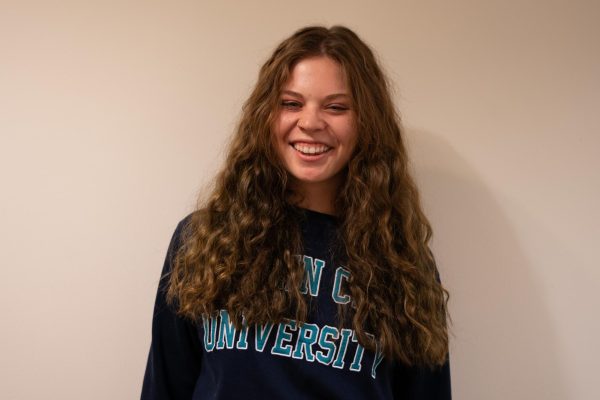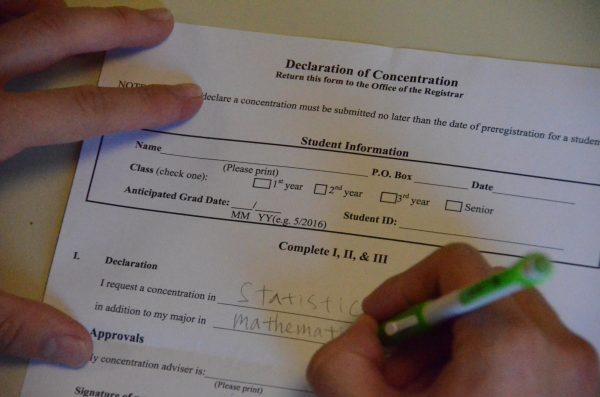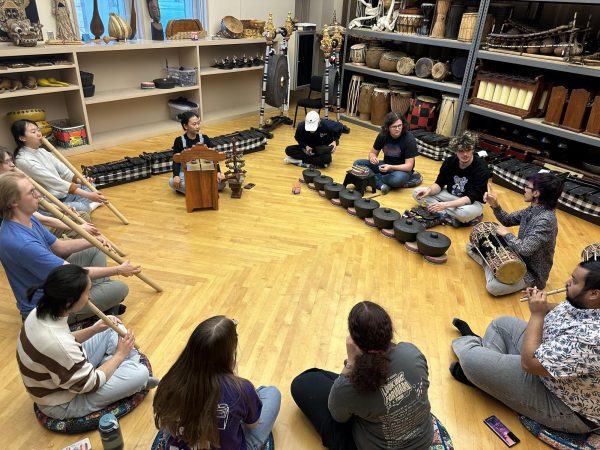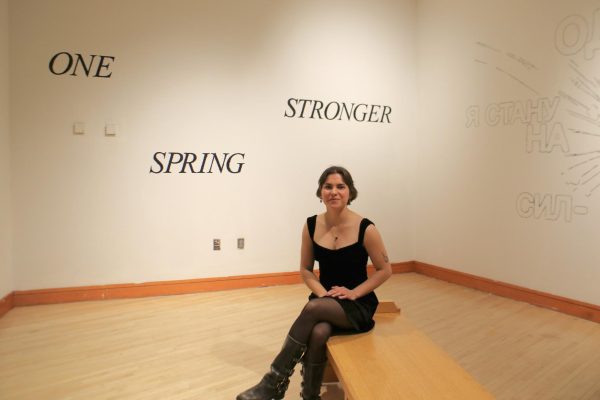Grinnell College celebrates 50th Anniversary of Title IX
September 26, 2022
“Try to imagine a university where women are less than 10% of the student body,” said filmmaker and lawyer Dawn Porter at a Scholar’s Convocation on Sept. 15. “Think about that. Look around you. How many women are there in this room? Get rid of 90% of them. That was the situation back in the early 1970s.”
This year marks the 50th anniversary of Title IX, the law that requires equal opportunities for all sexes. For any organization receiving federal funding, which includes nearly every U.S. university, Title IX prohibits discrimination based on sex. This law, a mere 37 words in length, required schools to remedy hostile environments or risk their federal funding — an important stepping stone for gender equality.
In honor of the 1972 ruling, Grinnell College took part in the celebration happening at colleges across the nation by inviting multiple speakers to come share their work and experiences with Title IX. As part of the Title IX Symposium, the Rosenfield Program encouraged students to learn more about the history of the groundbreaking law. At one event, Porter spoke about her new documentary series titled “37 Words.” The documentary focuses on the fight to pass Title IX and the evolving meanings of the law over time.
When Title IX was first passed, the law corrected the imbalance of men’s sports teams versus women’s sports teams. Women athletes now had enforced access and quality for playing sports. Much of the early uses of Title IX related to equal opportunities in sports. Porter pointed to an important protest orchestrated by the Yale women’s crew team, where they brought attention to unequal facilities between the sexes. The protest was a moment that garnered national attention.
As an homage to the lasting impact of women’s involvement in athletics, Grinnell incorporated their annual induction ceremony for the Grinnell Athletics Hall of Fame into the anniversary celebration.
Porter spoke to the benefits of athletic participation in college and said, “What you get from participating in a team, any team, is responsibility, understanding the experience of working together, leadership and confidence.”
But the impact of Title IX extends far beyond the reach of the athletics department. In the 1990s, Title IX was expanded to include the prohibition of sexual discrimination on campuses, thereby creating consequences for sexual assaulters.
Alexandra Brodsky, another speaker brought to campus for the symposium, is a lawyer dedicated to representing students dealing with sex and race discrimination cases. Brodsky began her work as a student advocate, working with organizations such as “Know Your IX.” She was also one of 16 Yale students to file a class action Title IX complaint to the Department of Education.
In 2011, the Obama administration issued a “Dear Colleague” letter to colleges and universities, advising them to implement a “preponderance of evidence.” In other words, in cases of sexual assault, the standard for evidence stated that the accused more likely than not committed the alleged offense. Brodsky points to this letter as a sign of favorable change.
“As a formal matter, it was very well established that schools had to respond to sexual assaults and other kinds of harassment. But near uniformly, schools are falling down on the job,” Brodsky said. “So, the Obama administration in 2011 publishes this ‘Dear Colleagues’ letter, and they essentially say ‘We mean business. You’ve been getting away with violating the law and you shouldn’t count on it any longer.’”
A little over ten years ago, just after the letter was published, Grinnell established their first Title IX coordinator, Angela Voos. Bailey Asberry, the current Title IX coordinator, worked together with Voos on the task force.
“We worked with lots of folks thinking about what a policy needs to look like. How do we get people trained up to really help respond to this in effective ways? What does our prevention work look like?” said Asberry.
Brodsky said that the burden of proof for a school to take action to protect or support a student is not nearly as high as that of a criminal trial.
“This kind of exceptionalism really permeates all of these debates about due process after sexual harm,” she said. “This sense that there’s something different about these types of injuries. That we need to treat them to be suspect, and we need to subject them to uniquely onerous and adversarial and traumatizing procedures.”
Asberry recognized that not every outcome of a hearing is satisfactory.
“The most important thing that I do is conduct a fair process and try to be clear that even if we can’t make a finding of responsibility, it means that evidence available didn’t support making that finding,” she said. “It doesn’t mean that you weren’t caused harm.”
Despite recent policies, Asberry remains optimistic about the state of Title IX on Grinnell’s campus. More than anything, she said that there is a far better trust between students and the available support systems. She works with confidential resources like Chaplin Deanna Shorb and the Grinnell Advocates to ensure that students feel comfortable speaking with someone.
“It’s about working through educating folks on what to say, how to connect them and drive them to resources on campus, even if that person is not me … At the very least we just want to make sure people have access to resources,” Asberry said. “And I would say when I look back 10 years ago, that trust wasn’t there.”
The topic of Title IX policies and enforcement at the College remains a topic of conversation at Grinnell and at colleges across the country. When Asberry imagines a perfect world 50 years from now, she said,“My sincerest hope is that my role is no longer necessary.”







































































